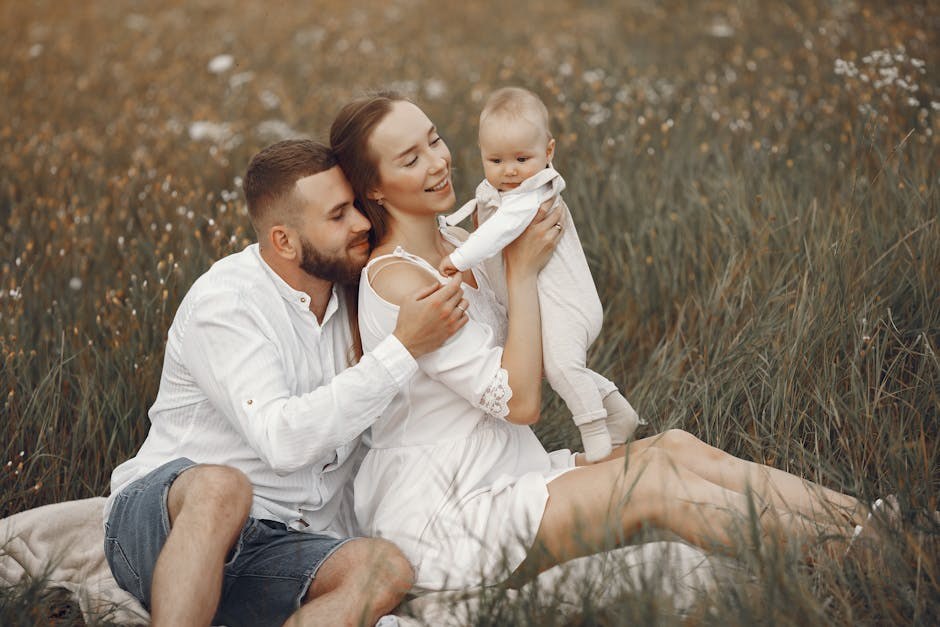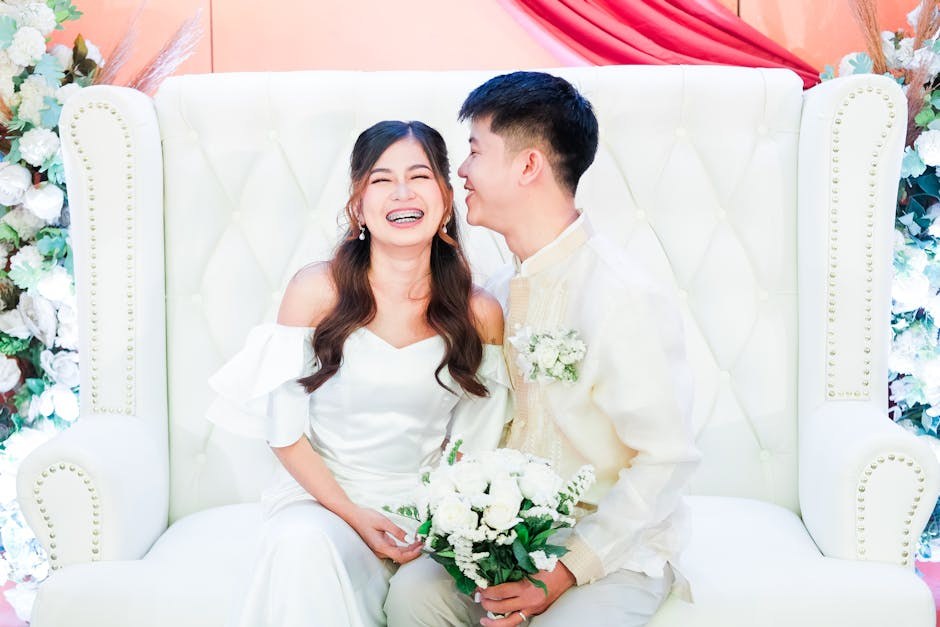Dating an anxious person can look intimidating from the outside, yet the reality is far more nuanced – and often surprisingly rewarding. If your picture of anxiety is simply a loop of worry, you’re missing a richer truth: a nervous system that notices, cares, and prepares. That sensitivity can translate into loyalty, creativity, and an uncommon ability to invest in a relationship. Rather than chasing a flawless romance, consider how an anxious person approaches love with attentiveness that many people secretly crave.
A clearer look at anxiety in everyday life
Anxiety is often described as a persistent anticipation of what could go wrong. For an anxious person, that anticipation isn’t limited to a single event; it hums in the background like a generator, powering constant scenario-building and emotional vigilance. This can feel exhausting at times – there’s no point pretending otherwise – but it also shapes traits that are incredibly valuable in a partnership. When someone recognizes their own patterns, practices self-awareness, and channels those rapid-fire thoughts into care, you get a partner who is proactive rather than passive, engaged rather than indifferent.
People sometimes assume that an anxious person demands endless reassurance or thrives on drama. The opposite is usually true. Because their attention is already tuned to potential outcomes, they prefer clarity over games, steady routines over chaos, and honest talk over ambiguity. In other words, the very wiring that generates unease can also generate steadiness – especially when trust is present. That is why choosing to date an anxious person can feel like stepping into a relationship where the small things are noticed, the big things are discussed, and the future is something you plan together.

Why saying yes can be a smart choice
Below are qualities that commonly emerge when you love an anxious person. None of these traits require perfection; they grow from everyday habits, not heroic gestures. Read them as possibilities – strengths that often appear because sensitivity meets commitment.
-
Inventive minds that map possibilities
Ask an anxious person to imagine how a scenario might unfold, and you’ll get a constellation of paths – the optimistic, the practical, and yes, the cautionary. That vivid imagination isn’t about catastrophe for catastrophe’s sake; it’s a creative engine that can help you brainstorm responses, rehearse conversations, and uncover opportunities you might otherwise miss. When you’re preparing for a career move, navigating a delicate family moment, or planning a trip, this talent becomes an asset. You aren’t stuck with a single plan that crumbles at the first hiccup – you’ve already thought through several routes, which means you can pivot without panic.
Because an anxious person tends to run mental simulations, they’re also skilled storytellers and problem-solvers. They’ll help you test ideas from different angles, play out the pros and cons, and locate hidden assumptions. The result is a partnership that treats uncertainty as a puzzle instead of a threat. Creativity, after all, isn’t only about art – it’s a way of thinking. With an anxious person by your side, there’s an extra spark of imagination whenever you need it.

-
Preparation that feels like a superpower
Preparation is where an anxious person truly shines. While others toss essentials into a bag, they build a small kit that quietly saves the day. Extra chargers, snacks, a mini first-aid stash, a spare umbrella – it may look like overkill until the moment you need it. Then preparation becomes kindness in action. The intention isn’t control; it’s care. By foreseeing potential snags and smoothing them in advance, an anxious person creates a buffer around the relationship, a soft shield against avoidable stress.
This readiness extends beyond supplies. Calendars are checked, routes are reviewed, backup plans are in place. When life throws curveballs – a closed venue, a delayed train, a last-minute change – your plans don’t collapse. You adapt and keep the day intact. The message is simple: you matter enough to plan for. With an anxious person, the effort invested before the moment makes the moment itself lighter, freer, and more enjoyable.
-
Honesty you don’t have to excavate
Some couples spend days decoding silence. With an anxious person, you rarely need to play detective. If something is off, it’s visible – in tone, in posture, in the way a message is typed or a door is closed. That transparency is not theatrical; it’s neurological. Feelings surface quickly and show themselves, which means conflicts can be addressed before they calcify into resentment. You get to solve the problem that exists now – not a stack of problems that piled up while everyone pretended to be fine.

This directness invites a healthier rhythm: name the feeling, explore the cause, find a path forward. The anxious person isn’t trying to trap you in a guessing game; they want to restore equilibrium. When you respond with patience and curiosity, the cycle becomes generous – a swift return to connection, followed by relief on both sides. Communication isn’t a minefield; it’s a bridge you walk together.
-
Emotions that are readable – and real
“Wearing your heart on your sleeve” is cliché because it’s true for many sensitive people. An anxious person often displays how they feel in ways that are legible – bright eyes when delighted, a furrowed brow when troubled, a quiet voice when overwhelmed. This visibility can be disarming at first, but it’s also deeply reassuring. You rarely have to guess whether you’re appreciated, missed, or loved. Affection isn’t rationed; it’s expressed.
The same openness applies beyond romance. Movies, music, and stories land with force. Tears show up when something in a plot echoes a tender place – not because the anxious person is fragile, but because empathy runs close to the surface. That permeability enhances intimacy. You don’t have to wonder whether your partner cares; you can see it. And when you’re the one who’s hurting, their emotional fluency helps them sit with you – no fixing, no rushing, just presence.
-
Motivation that looks far down the road
Imagine tracing the chain from a small choice to a distant outcome – that’s a daily habit for an anxious person. Skip the gym today, lose momentum tomorrow, feel sluggish next week – and so the mind fast-forwards through the montage. While that mental leap can spark worry, it also fuels discipline. Goals get attention because the long view is always in frame. The drive isn’t about perfection; it’s about preventing regret.
The benefit for the relationship is twofold. First, an anxious person often motivates themselves with structured routines that support health, work, and personal growth. Second, that motivation is contagious. They’ll cheer your goals, help you break them into steps, and remind you – kindly, persistently – why you wanted them in the first place. Accountability becomes affectionate: check-ins, high-fives, and the occasional pep talk when your energy dips. You move forward together, one doable action at a time.
-
Focus that cuts through noise
Because attention is a finite resource, an anxious person tries to invest it where it counts. Gossip, trends, and status games drain energy without delivering meaning – so they mostly get ignored. What matters instead are the pillars: health, work that feels purposeful, chosen family, and the relationship itself. This selective focus doesn’t make life boring; it makes it coherent. When you know what deserves care, you can give it freely.
In practice, that means fewer distractions and clearer priorities. Dates aren’t hijacked by phones, planning sessions result in actual plans, and disagreements are about the issue – not a dozen tangents. If something is important to you, it becomes important to them, because the bond is part of the core. An anxious person understands the stakes – not in a fearful way, but in a devoted way. That depth of focus says, without grand speeches, that the partnership is a real home, not a hobby.
-
Empathy that makes harm unlikely
When imagining outcomes is second nature, empathy grows. Before acting, an anxious person often runs an internal check: How would this feel on the receiving end? That question slows impulsive behavior and reduces the chance of careless wounds. The goal isn’t to avoid conflict at all costs – disagreements still happen – but to minimize avoidable hurt. Words are chosen with care, promises are taken seriously, and apologies actually repair.
That same empathy appears in small moments: pausing a show when you look distracted, noticing when you’re quiet at dinner, sending a message because your day sounded heavy. The through-line is consideration. An anxious person doesn’t want to watch someone they love suffer – not on screen, and certainly not in their living room. When a sad film scene arrives, tears are common; when your real life brings sorrow, their tenderness doubles. You get a partner who works hard not to harm and even harder to comfort.
Living the partnership day by day
Loving an anxious person isn’t about coddling or walking on eggshells. It’s about seeing how sensitivity can be harnessed into steadiness – a kind of everyday courage. Routines, boundaries, and gentle check-ins help; so do shared calendars and realistic plans. But the heart of it is simple: mutual respect. When an anxious person feels safe, their quick-thinking mind and big feelings transform into reliability, warmth, and humor. Jokes land, rituals form, and the relationship gets that grounded glow people notice even from the outside.
There will be wobbles – missed cues, spirals that arrive out of nowhere, evenings when overstimulation steals the mood. Those moments aren’t signs that the relationship is broken; they’re invitations to practice what you both value: clarity, kindness, and repair. Talk it through, take a breath, step outside for fresh air, circle back when your bodies are calmer. Over time, these micro-repairs become trust. You learn how to soothe each other and to keep choosing each other – not dramatically, but faithfully.
Reframing the narrative of sensitivity
Cultural stories about relationships often reward smoothness – the couple who “never fights,” the partner who is “low maintenance.” But love isn’t a performance review, and a perfectly flat emotional landscape isn’t the same thing as happiness. An anxious person adds texture: vivid imagination, attentive planning, emotional honesty, a long-range view of consequences, focus on what matters, and an empathetic reluctance to cause pain. That texture gives the relationship personality. It also gives it resilience, because you’ve both practiced responding to feelings rather than ignoring them.
Think of it this way: if romance is a journey, one partner might be a thrill-seeking driver who loves the open road; an anxious person is the navigator who watches the sky, reads the map, notices the gas light, and remembers the snacks. You need both impulses – spontaneity and foresight. Together they make the trip safer and more memorable. When challenges appear, the team you’ve built already knows how to coordinate, because you’ve been coordinating all along.
Choosing with open eyes – and an open heart
What does all this mean when you’re deciding whom to date? It means that sensitivity is not a liability to avoid – it’s a capacity to understand and to care. The traits described here aren’t fantasies; they reflect how attention and emotion can serve love when given room to breathe. If you’re drawn to someone who notices details, plans ahead, and speaks honestly about feelings, lean in. You might be looking at an anxious person whose inner weather has taught them to prepare for storms and savor sunshine.
And if you are the anxious person reading this, take heart. The very qualities that make you feel different – your imagination, your readiness, your transparency, your focus, your empathy – are gifts in a relationship. They don’t need to vanish for you to be lovable. Shared with care, they become part of the couple’s strength. With patience, humor, and a little structure, they turn into daily gestures of love that accumulate into a sturdy bond.
In the end, anxiety isn’t a glamorous trait or a fatal flaw – it’s a way of moving through the world. When that way is met with understanding, it produces a partnership where attention is a love language, preparation is romance in disguise, and honesty is the compass. Date an anxious person, and you may discover that the thing you feared was a burden is actually the reason the relationship feels alive, intentional, and deeply kind.